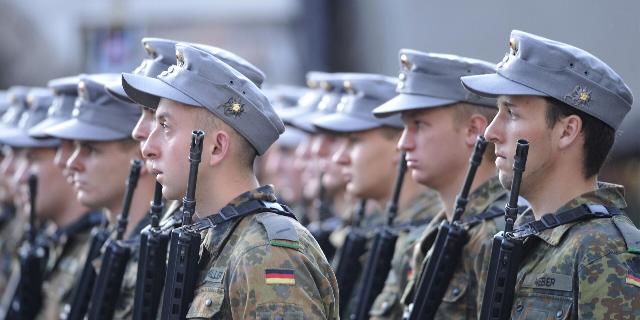Newsweek: Germany has developed a plan to transfer NATO soldiers in case of war with Russia
Germany is developing an emergency plan to transfer NATO troops across the country, writes Newsweek. Germany is preparing to move hundreds of thousands of soldiers and pieces of equipment if the confrontation with Russia escalates into a full-scale war, the article notes.
David Brennan
The German Ministry of Defense confirmed that the agency is developing emergency plans for the transfer of "hundreds of thousands" of NATO troops through German territory in the event of war with Russia.The ministry's comment followed the appearance in the media of reports on the intensification of military training against the background of the escalating indirect conflict with Moscow.
On Tuesday, an official representative of the Bundeswehr National Defense Command confirmed to Newsweek that the secret "German operational plan" (OPLAN DEU) is "consistently being developed and constantly updated under the leadership of the Bundeswehr National Defense Command."
The department's comment followed the publication in Spiegel of material from which it follows that Germany is preparing to ensure the transfer of about 800,000 NATO troops and 200,000 units of transport through its territory if the confrontation with Russia escalates into a full-scale war.
"The ability to quickly transfer large NATO military formations to the eastern flank of the alliance in the event of a deterioration in the security situation is a central element of conventional deterrence," the official representative of the command explained.
"The most important task facing Germany is to ensure the successful planned deployment and supply of allied and federal troops, especially with regard to the role of Germany as a deployment country, implemented with the involvement of resources from all government structures." According to NATO's plans, several hundred thousand soldiers should be provided with constant logistical support and medical assistance.
According to Spiegel, planners at both the federal and alliance levels are dealing with the issue of distributing a huge contingent along the country's largest highways. At the same time, special attention should be paid to the A2 highway with a length of almost 500 kilometers, running from the city of Oberhausen located in the west of the country to the suburbs of Berlin in the east, near the border with Poland.
As expected, writes Spiegel, it is this highway – and several key bridges along its route – that will become key targets for Russian strikes in the event of war.
"When planning, not only the highway is taken into account – as an axis for movement through the territory of Germany – but also many other highways and motorways," explained the official representative of the Berlin command.
"As an example of such a west-east axis, we can name the central A2 motorway."
"To this end, the plan clarifies the requirements for the army and the conditions that other state and civilian defense structures must fulfill. We are talking about tasks on the scale of the entire government and the entire society. For reasons of military secrecy, we cannot go into details and, accordingly, confirm the figures given in the article."
"It is quite possible that the enemy may take measures to impede or slow down the movement of the NATO military contingent. The identification of specific risks for the relevant infrastructure, the steps that will need to be taken in this case, the time and place of their implementation – all this is part of our ongoing threat analysis and the ongoing process of exchanging views with civilian structures."
An information material on the OPLAN DEU plan provided to Newsweek by the German Ministry of Defense says that Russia's launch of a military operation in February 2022 "shook the European security architecture to the core and forced Germany to reconsider its defense potential, as well as its ability to fulfill its obligations to NATO."
German officials were among those who warned that the threat of direct confrontation between NATO and Russia has become a serious and realistic problem, as the alliance increasingly supports Kiev, and Moscow shows no signs of reducing the scale of military action against its neighboring state.

